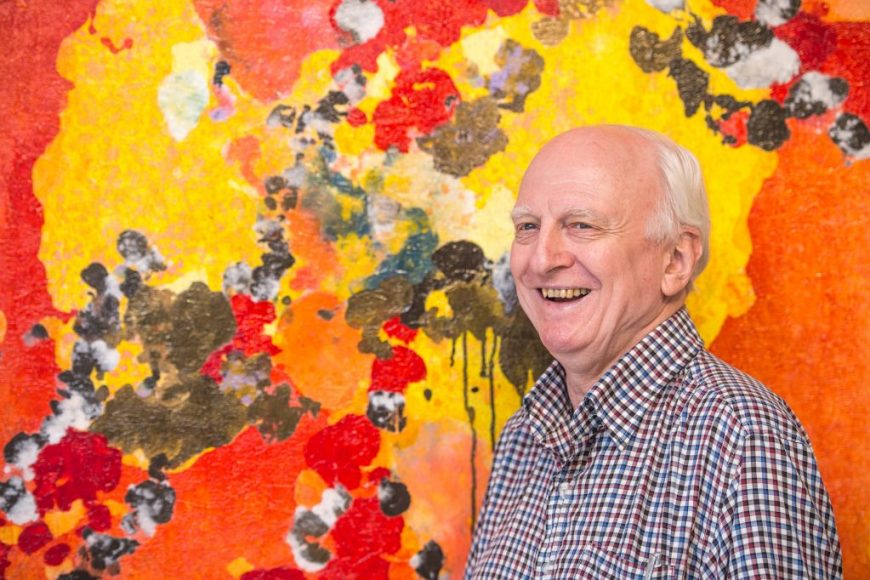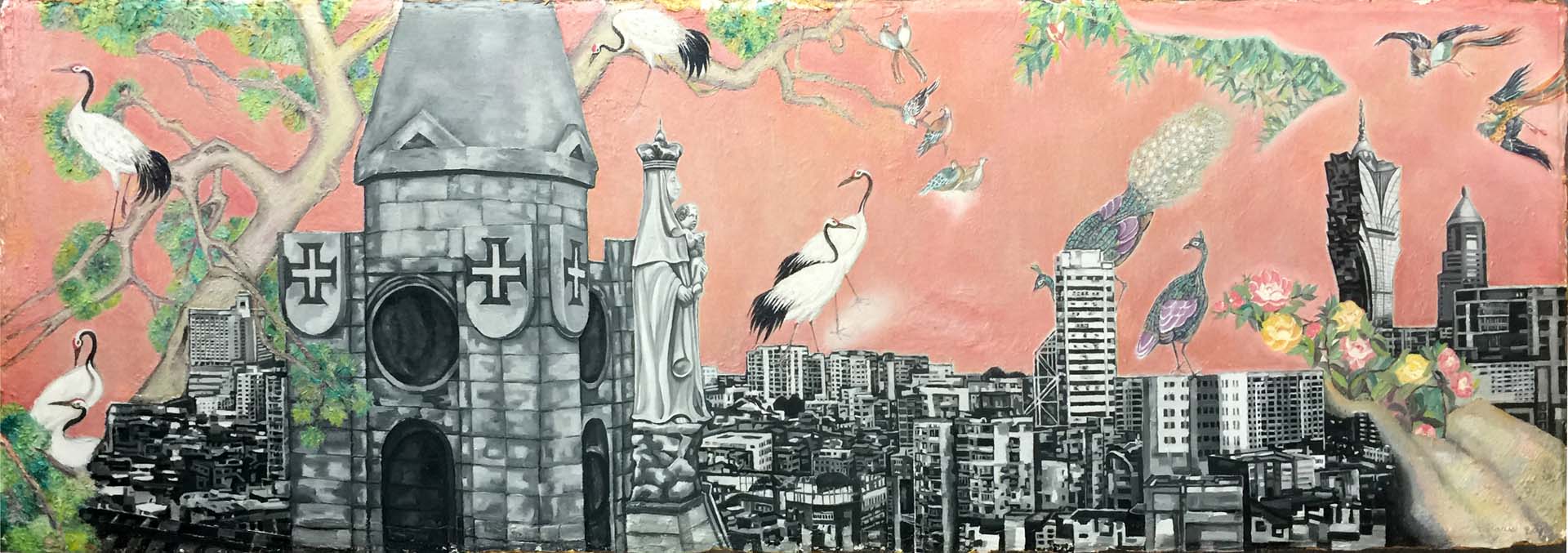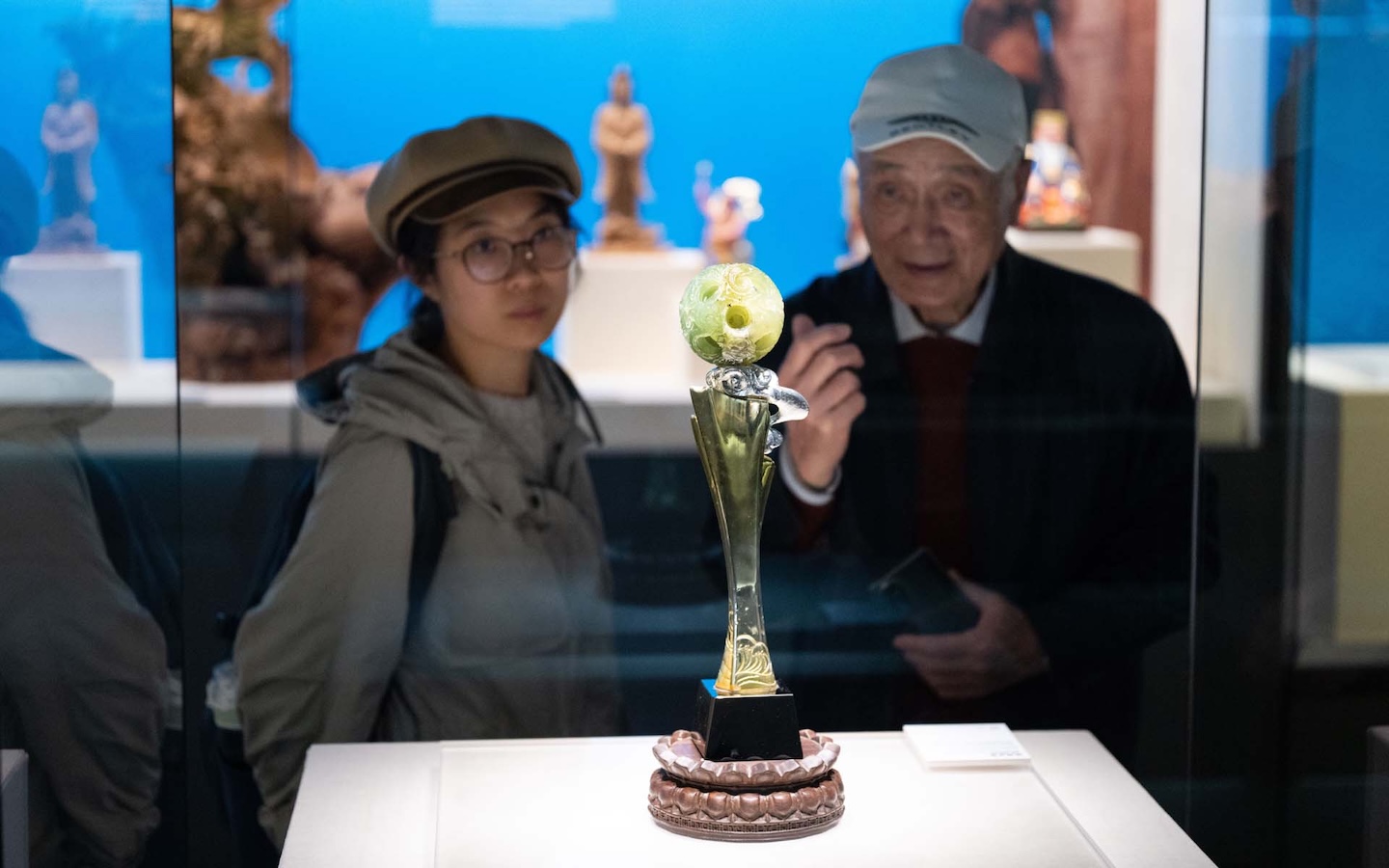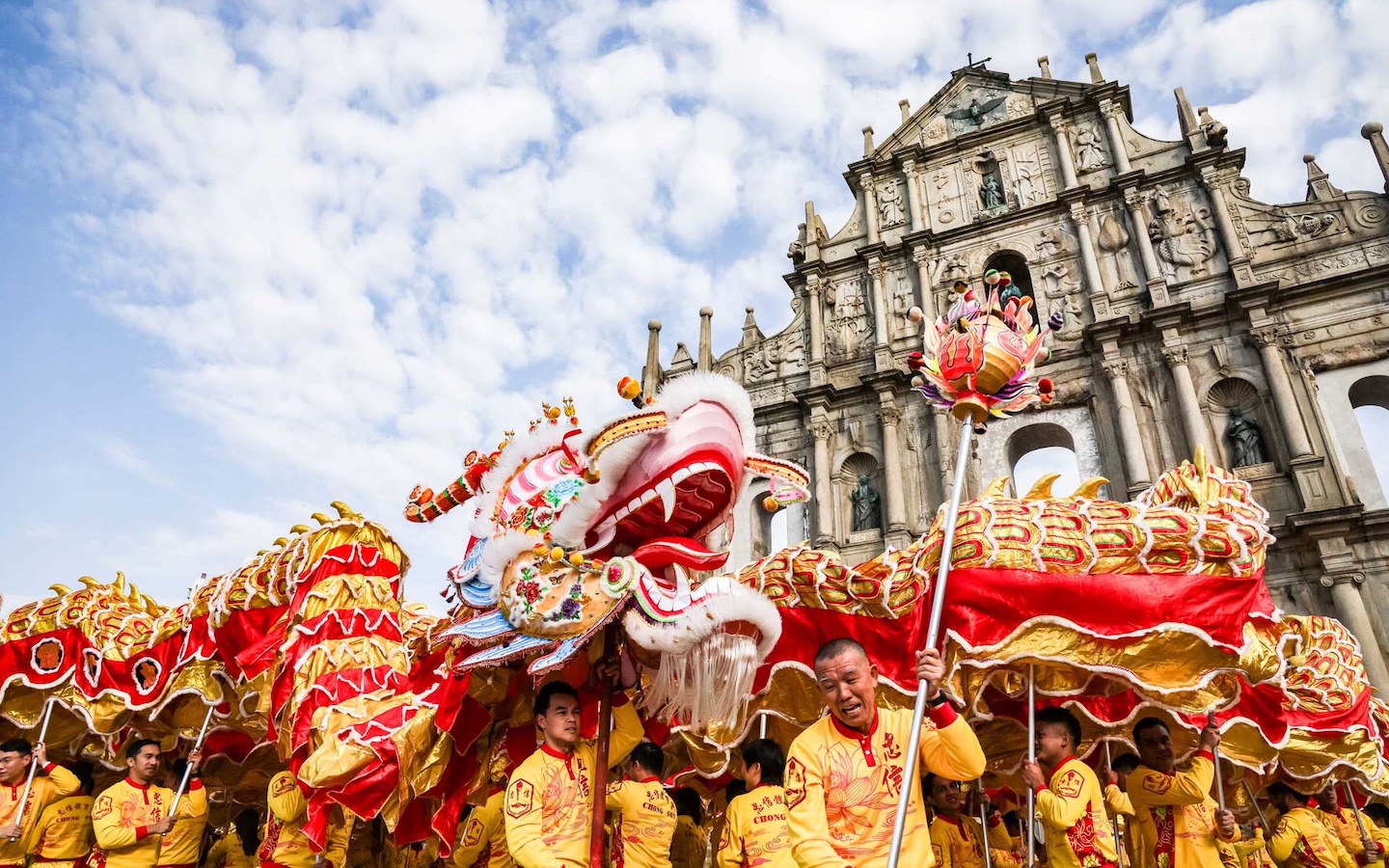Famous for his technique of combining acrylic paints with ink and tissue paper, abstract artist Denis Murrell has created hundreds of paintings over nearly 30 years in Macao
Australian‑born artist Denis Murrell discovered his unique mode of artistic expression here in Macao, where he’s resided since 1989. Over the last three decades, Murrell has created about 400 paintings characterized by a mix of vibrant colours and a particular textural appearance achieved through a technique that has become his hallmark.
The Macao Foundation supported Murrell’s most recent solo exhibition, Down and Up, in the Rui Cunha Foundation Gallery. Many of the 31 abstract paintings on display were created in the past three years. According to Murrell, they reflect the transformation in his technique, artistic taste, and style over the years.
“Gluing different shapes of tissue paper with acrylic paint on the canvas is still the dominant technique, but now I am also using techniques I have never used before, like dotting and pouring paint directly onto the canvas,” he explained, pointing to an abstract creation named Untitled; most of his paintings share the same non‑title, reflecting his belief that an actual name restricts the imagination.
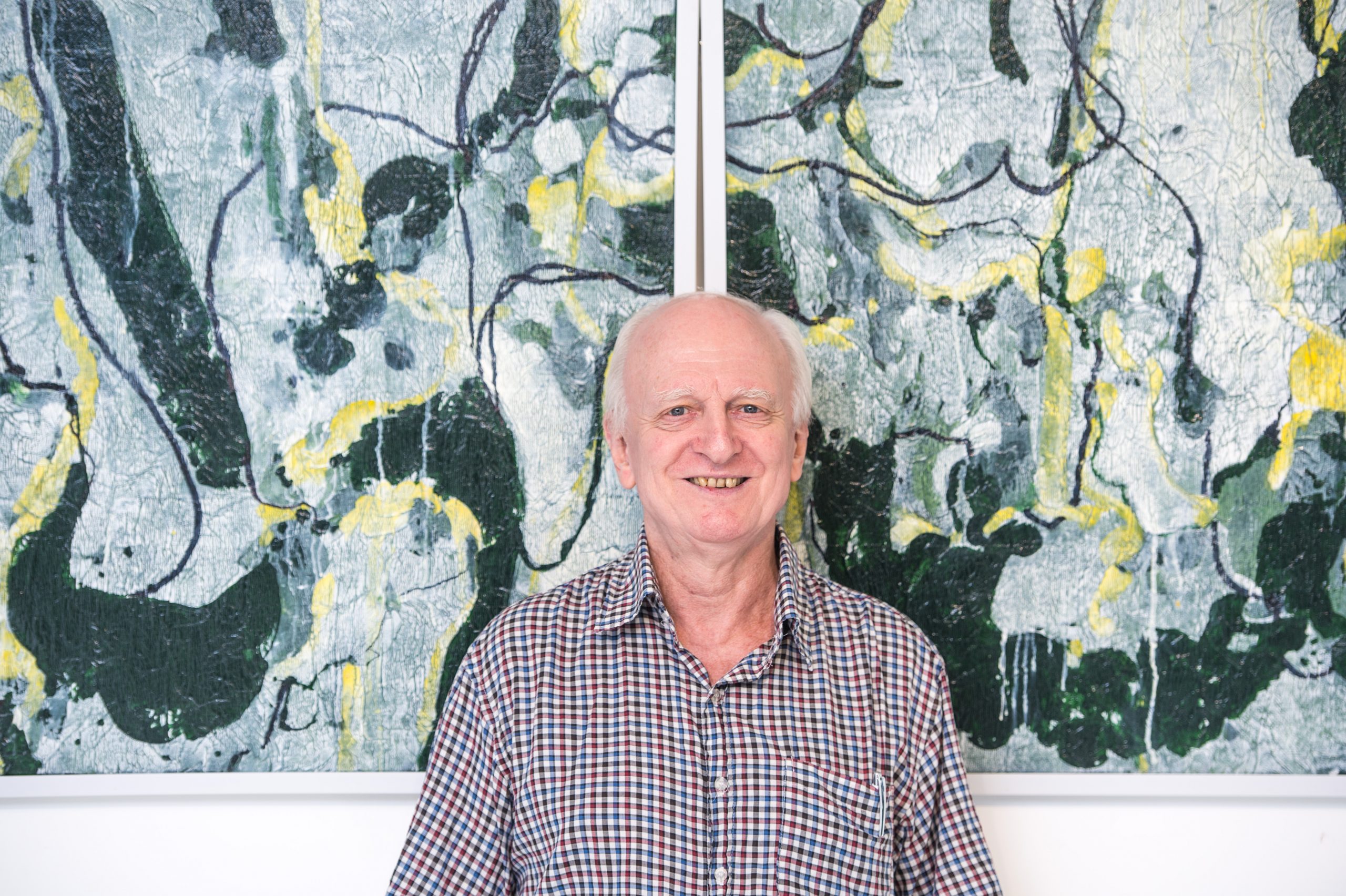
“I also use different kinds of material, such as toilet paper, restaurant tissues, cloth rag, and even denim,” he added. “I will try everything to create an interesting texture on my paintings.”
A Different Approach
Finding the creation of realistic paintings “absolutely boring,” Murrell’s preference for making abstract art began when he was a teenager in the 1960s. When Murrell’s high school art teacher told the class to draw fire, most of his classmates produced predictable images of blocks of wood with flames coming out. Murrell created an image of wood already burnt, blackened with little flicks of red coming out of it.
“I just want to do the things other people don’t,” Murrell said. “I like to search for a new way to do something.”
When he relocated to Macao some 30 years later, that same adventurous spirit in artistic expression led him to the unexpected discovery of his signature technique.
“I was painting in my apartment one day in 1991, and I accidentally dropped some paint on the floor. I cleaned it up with a piece of toilet paper and I was surprised to find that the colour actually looked great on it,” he recalled. “I glued it onto my painting and then thought, I’d like to do more with that.”
As an established artist of abstract creations, Murrell is often asked about his thought process when he is painting, but he admitted he never has an answer for that question.
“For instance, people like to ask why I use this or that colour; my answer is, because it’s lying nearest to me on the table!” he chuckled. “I believe all kind of things going through three lines – like, what time is breakfast, who is that person I met yesterday, would I put this line here or there… now and again you go back to painting, and then you drift off to something else.”
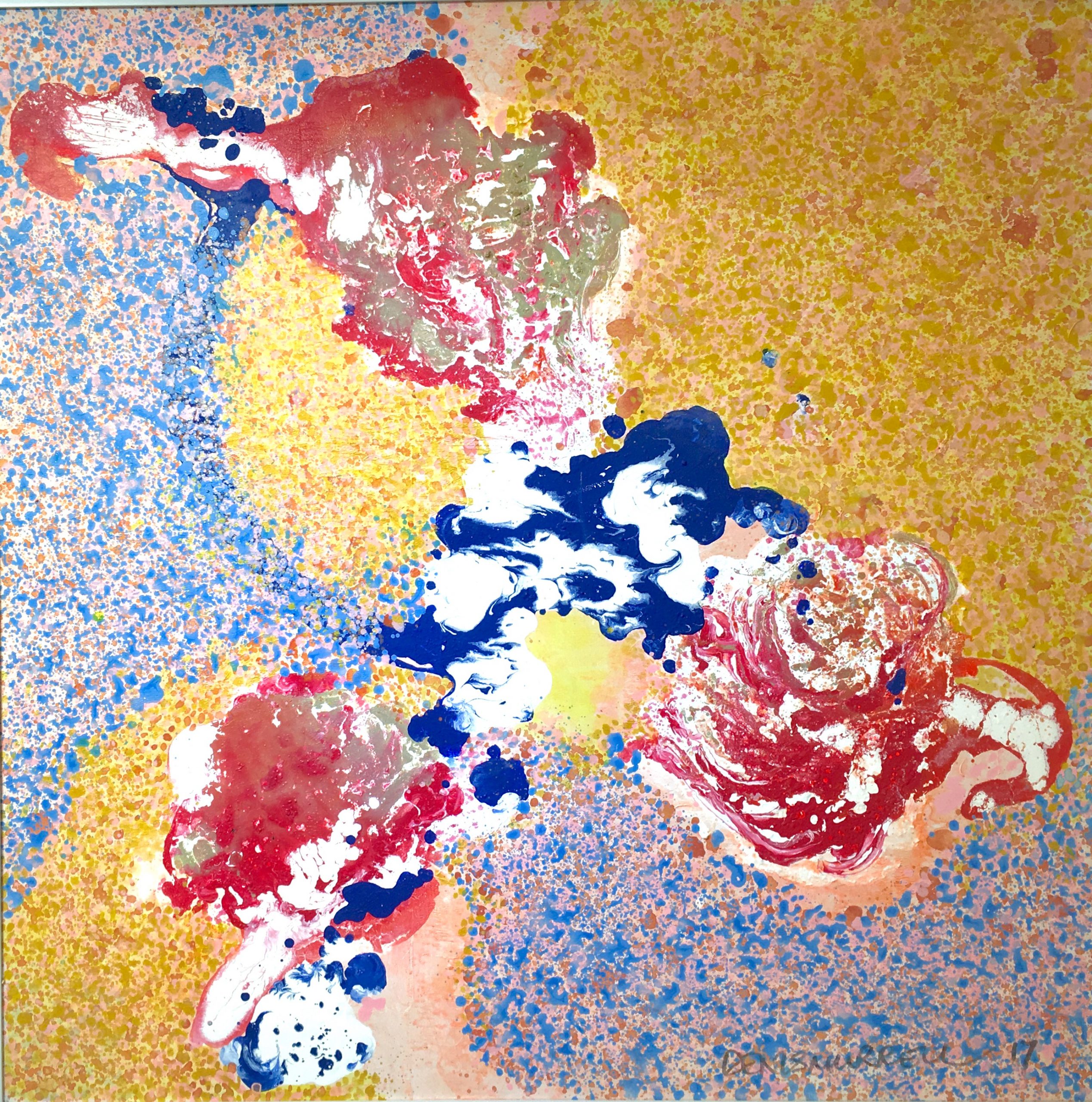
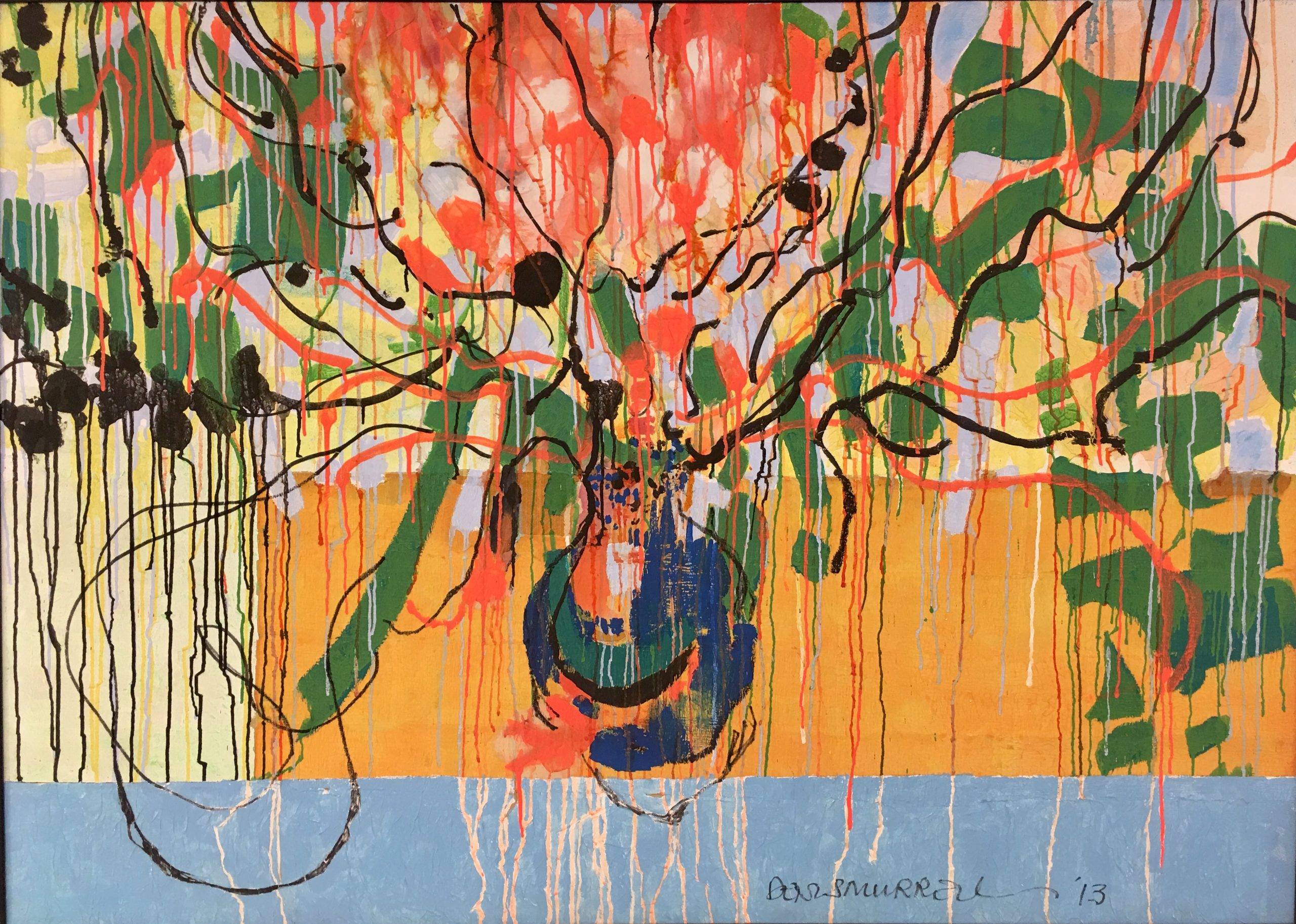
A Wandering Path to Macao
As a teenager, Murrell considered becoming an artist or photographer, but abided by his parents’ wishes, joining a teacher‑training program offered by the Australian School of Pacific Administration in Sydney. The program required him to take a two‑year service training in Papua New Guinea. He ended up spending 14 years in the tropical country, living there from 1967 to 1981.
Murrell recalled his time in Papua New Guinea as an enjoyable experience interspersed with danger. He contracted malaria there and experienced hair‑raising moments with violent people, including being chased by a drunken man who tried to stab him with a knife. However, he also met and married his wife during this time; they bought a small hotel in 1975.
He also worked in the health department, teaching medical English to doctors and nurses, and even drew cartoons for a local newspaper. After separating from his wife in 1978, he moved to the small town of Popondetta, capital of Oro Province, where he taught students how to grow tropical commodities such as rubber and coffee.
Murrell returned to Australia in late 1981, taking a teaching job at the International College of English in Melbourne. He became friends with many of his Asian students, and when he resigned in 1988, they gave him a beautiful address book filled with all their names and contacts.
“They wanted me to visit them when I travelled to Asia,” Murrell explained. “So I thought to myself, okay, I will. I flew to Macao during that first year of travel and I’m still here today!”
As a trained teacher, Murrell taught English during his early years in Macao. He also returned to painting after a long hiatus and befriended many local artists. Six or seven years ago, Murrell found the opportunity to become an art teacher. He continues to provide private tutoring to aspiring young artists, and has hosted painting workshops in a number of local art and education institutes such as Macao Cultural Centre and Institute for Tourism Studies.
I just want to do the things other people don’t. I like to search for a new way to do something
Dennis Murrell
Today, Murrell considers not becoming an art teacher earlier in his life as one of his greatest regrets. “I would have had a much happier life, if I have been teaching art from the beginning,” he said. “Since starting to teach art, my feelings about teaching and my happiness have both improved.”
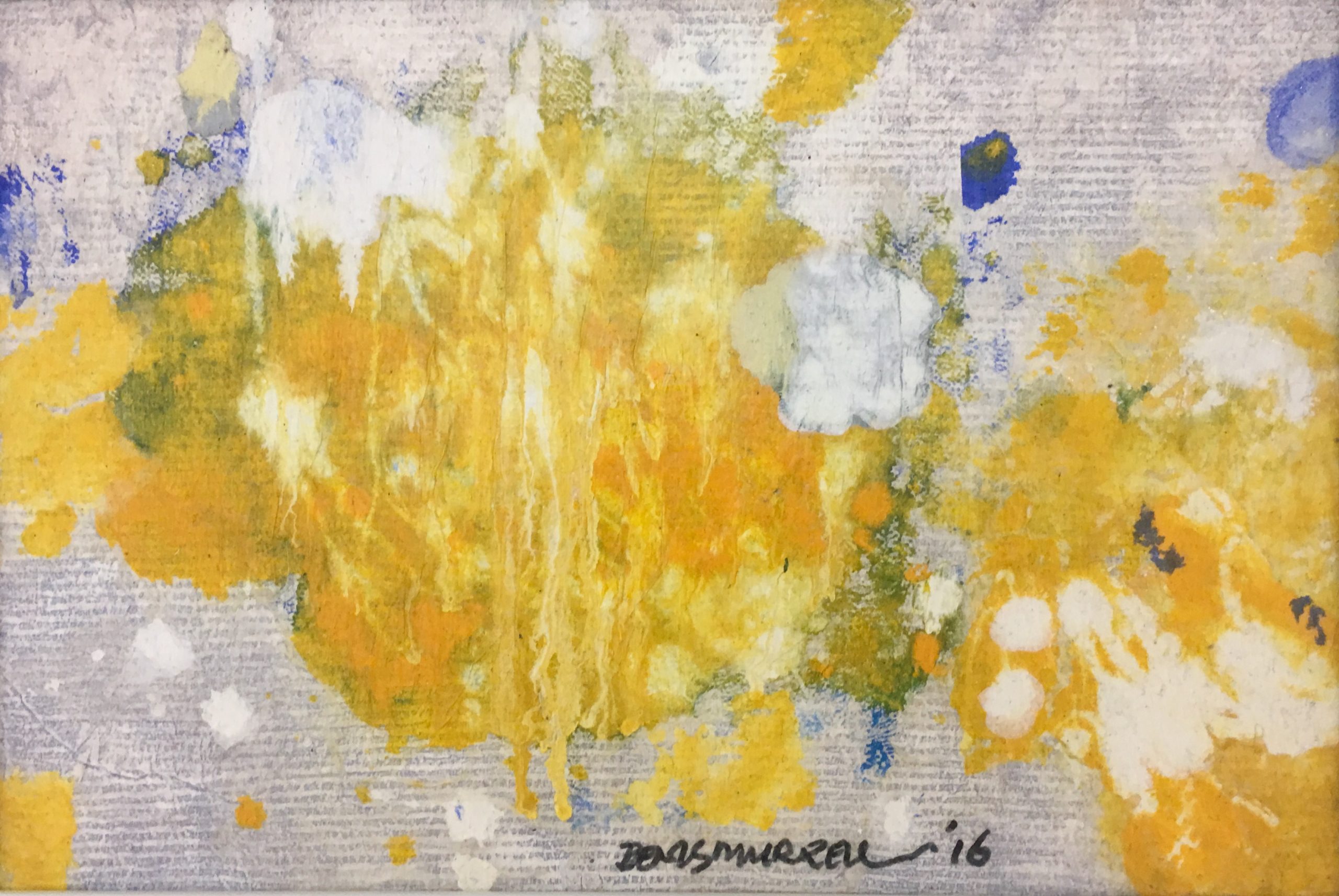
Building a Bond with The City
During his years in Macao, Murrell has entered into major painting contests. He won first prize for Western painting in the 2nd Macao Biennial Art Exhibition in 1995, and first prize in the Western Painting section of the 13th Collective Exhibition of Macao Artists in 1996. In 2000, his painting Lunar Fantasy won a bronze medal at the Forte Cup 20th Century Asian Art Competition, held in Washington DC, United States of America.
In 1997, Murrell became a member of The Friends Circle of Culture of Macao, and through his connection with the association, he’s had a number of solo and group exhibitions in Macao, Hong Kong, and mainland China, as well as overseas in Portugal, Malaysia, Japan, Sweden, and India.
But for Murrell, Macao is home. He described the compact, multicultural city as providing a great environment for the development of aspiring artists.
“There are many art groups and projects going on in the city, and mostly everybody in the art world cooperates and gets along well with everybody else,” Murrell said. “When I have exhibitions, other artists come to help me – putting the paintings up on the wall, helping me to transport, and even getting the frames made for my work. I feel that it’s the best place for an artist to work.”
